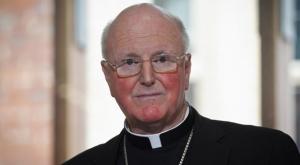When the world changes, all commitments must be renewed. Our churches are filled primarily with members driven by inertia, social acceptance, entertainment, and available member services rather than a commitment to God put into practice through worship and service.
John Lennon’s great song, Imagine, is often played at Christmas time (apparently without irony) to remember his murder. The song invites us to imagine a world without God and without religion. Can you imagine such a thing?
The answer is almost certainly yes. That is why the song works. Look at a television series like the new Dallas, that ostensibly takes place in one of the most religious cities in the US. Yet it can also imagine socially prominent families that are not in the least religiously engaged even though their real world counterparts almost certainly are.
Charles Taylor, in his book A Secular Age, shows how contemporary Western society has reached a point where not only the type of religion we hold, but whether or not we even want to be religious, has become optional. We can at least imagine living without God and without religion. We know we have the option, even if we don’t exercise it. And of course as surveys show, an increasing number of young people don’t just imagine living without God and religion. They do it, and they don’t feel in the least unfulfilled. Indeed this is Taylor’s key thesis: contemporary people living in the US and Europe can find fulfillment without God or religion.
But for a moment let’s not think about the lack of religion to the “nones.” Let’s think about what it means to share a commitment to the Christian gospel to those who are religious. But for whom not being religious is an option.
These are people who know that they could slip into disbelief or a different religion without having the world crumble or life lose its meaning. People for whom not being religious is truly an option, just one that they haven’t exercised. People for whom coaching a kids soccer team brings a real sense of fulfillment and a spa weekend offers genuine peace of mind but who, at least for the present, opt into going to church most of the time.
We have to ask this question because it seems very likely that our churches are filled primarily with members driven by inertia, social acceptance, entertainment, and available member services rather than faith in God put into practice through worship. They are people who have opted into attending church and believing in God without actually making a real commitment to faith in God.
In our contemporary secular society we need a new kind of evangelism, because the choice for Jesus Christ comes to us in a form that it has never come in before. It isn’t a commitment to true doctrine, or true worship, or true Christian experience – things that obsessed the founders of our denominations and let them to demand choices within a society where Christianity itself was a given.
Nor does our choice for Jesus Christ come to us in the form of a choice between sin and salvation, for even that choice is possible only in a world that contains both options in clear relationship to God as conceived in Christianity.
No – the evangelistic choice a contemporary person is asked to make is of a completely different order than that of previous generations, for it is not a choice within a given framework for conceptualizing the world. It is a choice between apparently equally satisfying frameworks for conceptualizing the world.
And this kind of choice takes a far different, and far deeper and more constant commitment than that of simply choosing to put one’s faith in Christ for salvation. It requires a commitment that most of our churches are poorly equipped to help a person realize, and which most don’t even understand.
Evangelism in a secular age isn’t about making a choice, or even making a commitment to church community. It is about drawing people, through worship, life in community, and service, into a framework for understanding reality whose value and comprehensiveness isn’t immediately obvious. Evangelism in a secular age is an invitation into commitment to an arduous course of learning, and a long term relationship with a community that has no obvious and immediate payoff and does have immediate and obvious hardship.
Evangelism in a secular age is about faith, but the recognition that the human capacity for faith is not merely a capacity for making choices within a given world. Faith is knowing that our self is a shadow cast by a greater light, and that we can never know which road leads certainly to that light. Yet faith knows that one must choose some road, or remain ever in the dark.











